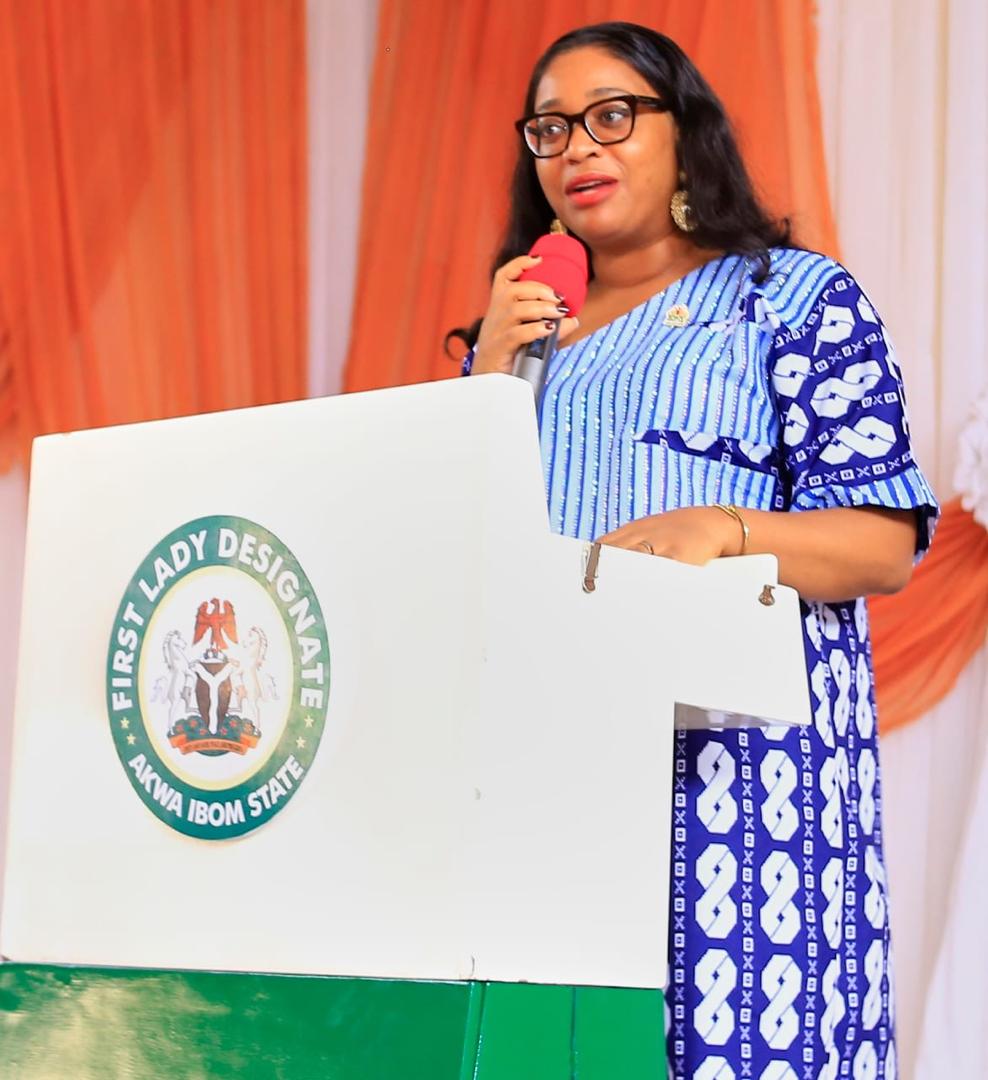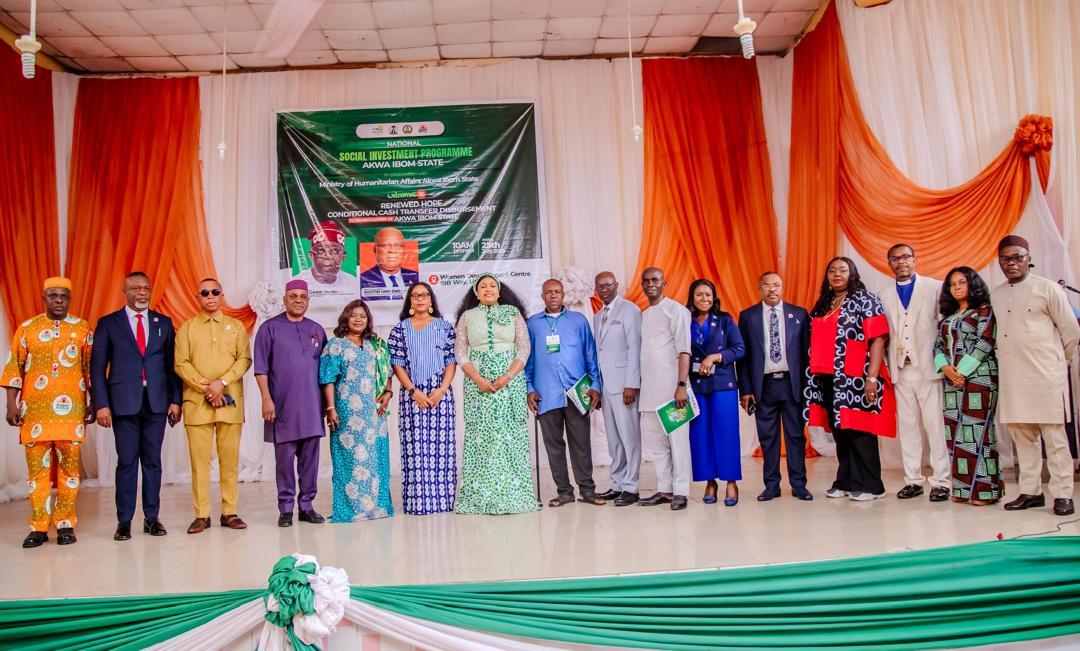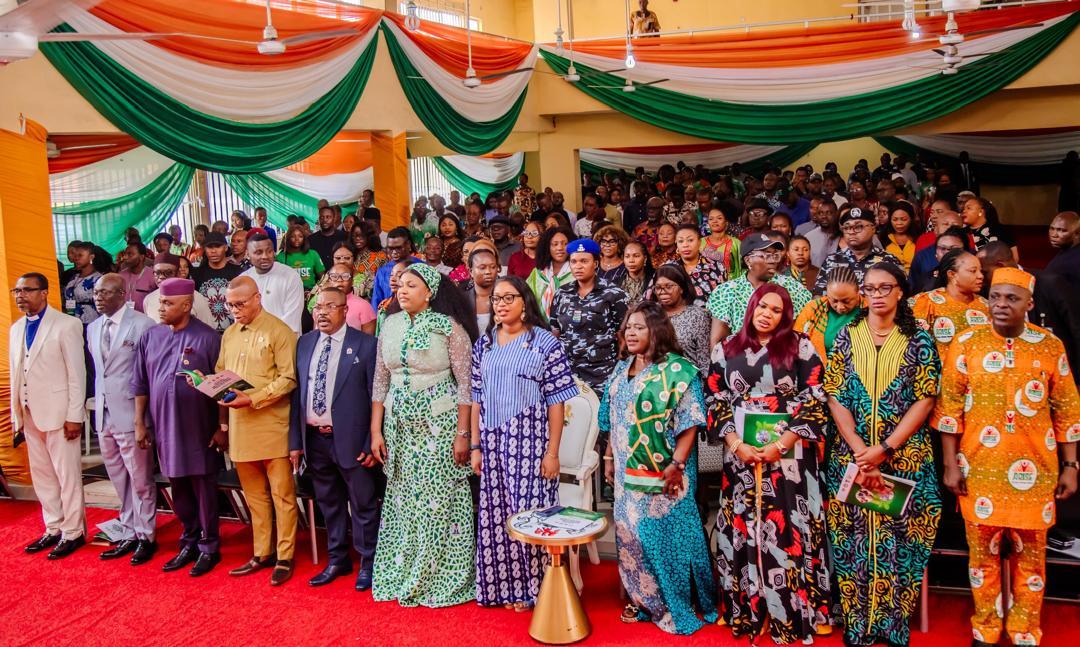From Policy to Impact: Renewed Hope & Akwa Ibom’s Arise Agenda—Advancing Social Equity for Human-Centred Development

From Policy to Impact: Renewed Hope & Akwa Ibom’s Arise Agenda—Advancing Social Equity for Human-Centred Development
By Inemesit Ebu

Since assuming office in May 2023, the Governor Umo Eno-led administration has been characterised by a clear vision for progress, people development, and humanitarian response that goes beyond charity—embedding social welfare into state policy via the establishment of the Ministry of Humanitarian Affairs, while weaving the indices that have raised the human development index in Akwa Ibom.

He has delivered 205 ARISE Compassionate Homes to the most vulnerable and has rolled out equipment support to over 2,000 MSMEs, thereby boosting local entrepreneurship. The governor has also provided monthly stipends to 600 elderly persons, ensuring dignity and support in old age. He has facilitated health insurance for 1,287 elderly persons and persons with disabilities (PWDs), awarded educational grants to 243 students with disabilities, and promoted inclusive education.
Also, Governor Eno has supported entrepreneurs with ₦750,000 and ₦5,000,000, respectively, to foster economic independence and stimulate the business ecosystem. He has issued ₦50,000 grants to youths, empowering the youth demographic, as well as reached 477,000 households through food distribution—reinforcing the notion that social programs are about dignity and resilience.
Clearly, Governor Eno’s commitment and strategic approach to inclusive development are becoming evident, thereby positioning Akwa Ibom as a leader in humanitarian governance and social security in Nigeria. Today, that proactive stance inspires the confidence we now experience through the Renewed Hope Social Security Program of the President Tinubu-led administration. For us in Akwa Ibom, this is not just a program but a reliable and inclusive pathway to sustainable growth and empowerment.
Through the Renewed Hope Agenda initiative of President Bola Ahmed Tinubu, over 27,000 Akwa Ibom people received a Conditional Cash Transfer of ₦75,000 earlier today. This initiative, strategically designed to lift the poorest of the poor out of poverty and reduce economic hardship, is a social investment that aligns with the humanitarian model in Akwa Ibom State.

To rekindle hope in our people, our amiable Governor, Pastor Umo Eno, represented by the Coordinator, Office of the First Lady, Mrs. Helen Eno Obareki, today flagged off the program at the Women Development Centre amid resounding applause.
In his remarks, Governor Umo Eno applauded President Bola Tinubu for the initiative and for ensuring that Akwa Ibom people benefit from the program. His Excellency reaffirmed his commitment to partnering with the Federal Government to support vulnerable citizens, particularly through the implementation of the ARISE Agenda.
The Governor Umo Eno-led administration has laid a strong foundation in humanitarian investment, social security, and poverty alleviation that directly aligns with the Renewed Hope vision of the Federal Government.
Under our food distribution program, over 477,000 households have been reached. This demonstrates that our policies are not just about giving food or cash to people but about restoring dignity, driving economic empowerment, and building a state where no one is left behind.
The synergy between the state and the National Social Investment Programme Agency (NSIPA) is clearly pivotal to ensuring the seamless and transparent implementation of this initiative.
It is also imperative to ensure that for the sustainability of this intervention, all hands must be on deck. Therefore, I call on corporate bodies, development partners, and philanthropic Nigerians to align and support the program—because the government cannot do it alone.
I urge beneficiaries to use the support wisely by investing in their small businesses. To those not yet captured in the social register, I assure you of the state government’s commitment to expand and reach more people.





